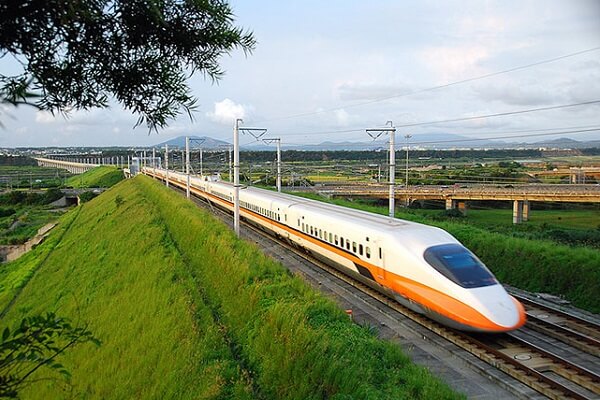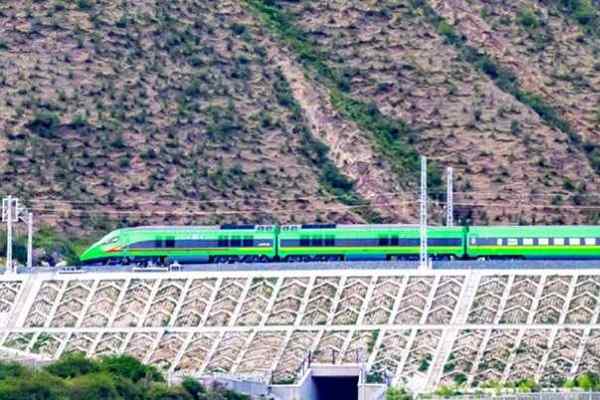 Saudi Arabia and Qatar Sign Landmark Agreement for Riyadh–Doha High-Speed Rail Link
Saudi Arabia and Qatar Sign Landmark Agreement for Riyadh–Doha High-Speed Rail Link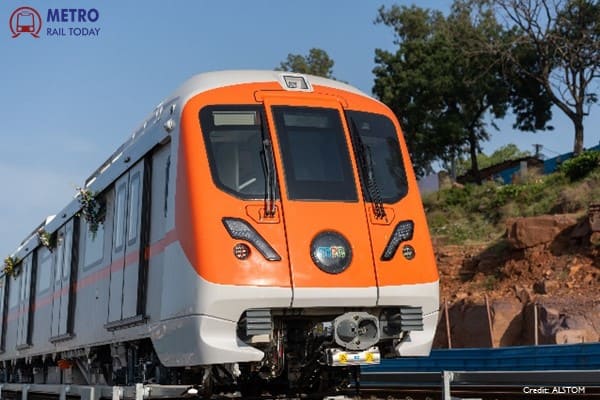 PM Narendra Modi to inaugurate Bhopal Metro operations on December 20, CMRS approval received
PM Narendra Modi to inaugurate Bhopal Metro operations on December 20, CMRS approval received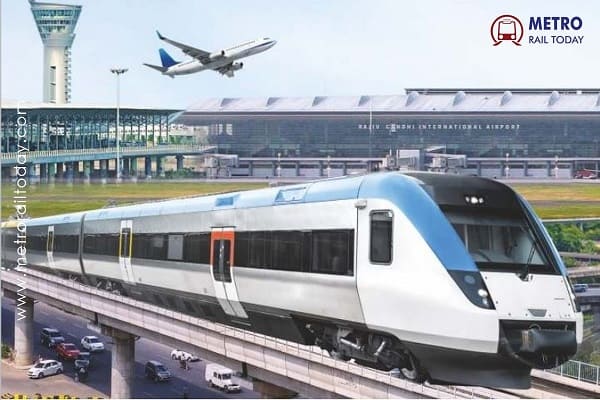 Centre orders NCRTC to prepare revised DPR for ₹20,637 crore Delhi-Noida Airport RRTS Corridor
Centre orders NCRTC to prepare revised DPR for ₹20,637 crore Delhi-Noida Airport RRTS Corridor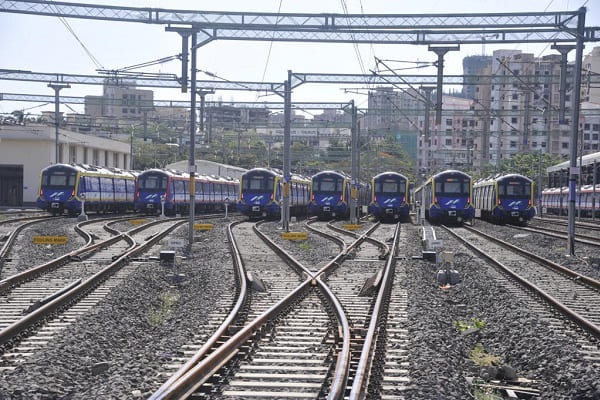 Mumbai Metro deploys Indigenous AI-Based Wheel Profile Monitoring System in Charkop Depot
Mumbai Metro deploys Indigenous AI-Based Wheel Profile Monitoring System in Charkop Depot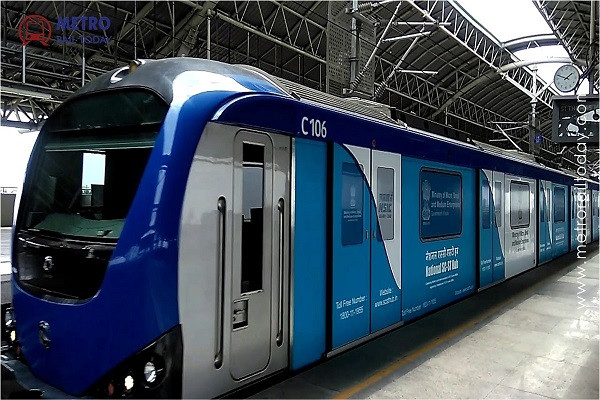 ADB approves $240 million loan to accelerate Chennai Metro Phase 2 Expansion
ADB approves $240 million loan to accelerate Chennai Metro Phase 2 Expansion Kalpataru Projects-HG Infra Engg JV bags ₹1,415 Crore EPC Contract for Thane Metro Rail Project
Kalpataru Projects-HG Infra Engg JV bags ₹1,415 Crore EPC Contract for Thane Metro Rail Project MAHA Metro floats ₹223.70 Crore Civil Tender for Six Elevated Stations of Thane Metro Rail Project
MAHA Metro floats ₹223.70 Crore Civil Tender for Six Elevated Stations of Thane Metro Rail Project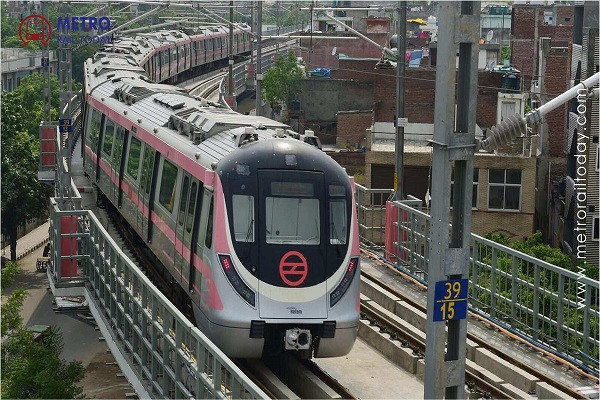 Construction begins on Delhi Metro Phase 4's Saket G Block–Lajpat Nagar Corridor
Construction begins on Delhi Metro Phase 4's Saket G Block–Lajpat Nagar Corridor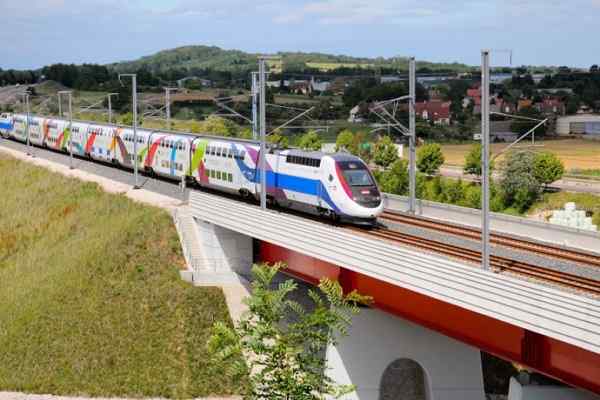 Kerala proposes RRTS as alternative to K-Rail Silver Line, Eyes faster clearances under Metro Policy
Kerala proposes RRTS as alternative to K-Rail Silver Line, Eyes faster clearances under Metro Policy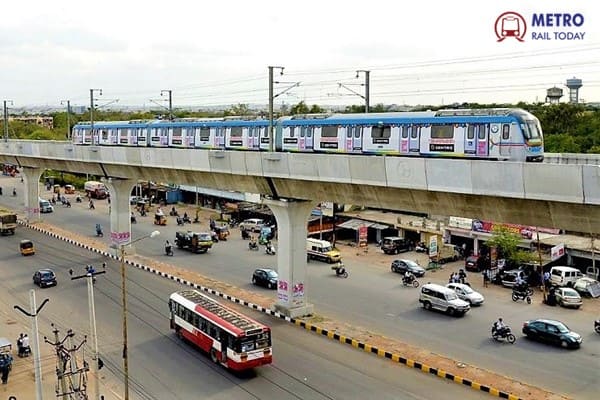 India’s Metro Rail Network crosses 1,080 km as Southern States drive expansion
India’s Metro Rail Network crosses 1,080 km as Southern States drive expansion
Exclusive Interview with Chirag Sethi, Head-Rail Traction Business, Delta Electronics India
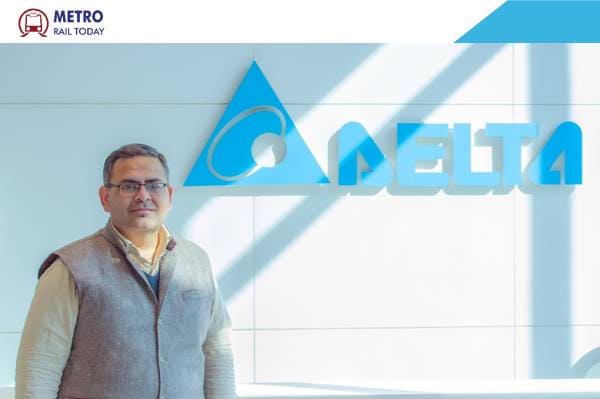
Chirag Sethi has been working as a Business Head - Railway Traction Power for Delta Electronics India.
Delta is operating since 2003. Delta Electronics India Private Limited, is a leading power and energy management company in the country. Delta operates in three business categories: Power Electronics, Automation and Infrastructure. It has a legacy of operating in India with market leadership in Telecom Power Solutions, Renewable Energy Solutions and Display Solutions. It is also a leading provider of Industrial Automation Solutions, UPS & Datacenter Solutions, EV Charging Solutions, Rail Transportation Solutions, Energy Storage Solutions, DC Fans & Blowers, and Components. With fourteen regional offices, four manufacturing facilities (Rudrapur, Gurgaon, Hosur and Krishnagiri) and two R&D centres (Gurgaon and Bengaluru), Delta has a strong presence across India with more than 200 channel partners.
In a recent intraction with Metro Rail Today, Chirag shared his views on urban mobility and told Delta's contributions in Rail & Metro sectors in India.
Please share company’s portfolio amidst economic slowdown and speculations of a global recession. What are the major orders on book across all segments company is working?
Delta Electronics is dedicated to supporting India's efforts to mitigate climate change by aggressively expanding its portfolio of sustainable solutions. The company has been making significant strides in the EV charging segment, efficient power supplies, converters, UPS, and clean energy solutions. These product lines are critical in enabling the country to shift to more sustainable modes of energy consumption and combat the growing issue of climate change.
The company's extensive portfolio of automation solutions also complements its sustainable offerings, helping businesses and individuals manage energy consumption more effectively while increasing productivity.
One key area of growth for Delta Electronics in India is its UPS business, which has been gaining significant momentum due to the proliferation of data centers across the country. These facilities require reliable and efficient power backup systems to prevent data loss and maintain uptime, making UPS an essential component of the data center infrastructure.
Additionally, the growth of 5G telecom infrastructure in India has been driving the demand for Delta Electronics' telecom power solutions, which have remained a key contributor to the company's business in the country. These solutions provide critical power management capabilities for telecom infrastructure, ensuring reliable and efficient communication services for consumers and businesses alike.
Overall, Delta Electronics is focused on providing sustainable solutions that align with India's goals of mitigating climate change. The company's portfolio of products and services, including EV charging, efficient power supplies, converters, UPS, and clean energy solutions, are complemented by automation solutions and driven by the growing demand for reliable power management solutions in data centers and telecom infrastructure.
Mobility landscape is changing fast. Most of the companies are making significant investment in R&D for providing customized solutions. What are your preparations and plans in this regard?
Delta Electronics is committed to remaining at the forefront of innovation, and to achieve this, the company has invested heavily in research and development (R&D) activities. Delta Electronics recognizes the importance of staying up-to-date with the latest technologies and trends in order to provide the best possible solutions to its customers.
To this end, the company has a substantial R&D team in India, dedicated to both low voltage (LV) and high voltage (HV) technologies. In the coming years, Delta Electronics plans to strengthen this team even further, ensuring that it remains at the cutting edge of technological advancement.
For Delta Electronics, mobility is a crucial area of focus, and the company is actively developing solutions in both the EV charging segment and the Rail infrastructure portfolio. In response to the increasing demand for EV charging stations, Delta Electronics is developing a range of chargers to cater to different vehicle segments, including passenger vehicles, buses, and commercial fleets.
In addition, the company is developing power quality solutions to address the challenges that are likely to arise as a result of the growth in rail electrification and the complete shift to electric rolling stock. These solutions are designed to ensure that the power supply to the rail network is stable and reliable, while also meeting the strict safety and regulatory requirements of the industry.
Overall, Delta Electronics' strong focus on R&D, combined with its commitment to innovation and sustainability, has positioned the company as a leader in the development of cutting-edge mobility solutions. Whether it is through its EV charging segment or its rail infrastructure portfolio, Delta Electronics is committed to providing its customers with the latest and most innovative technologies in order to meet the evolving needs of the market.
Delta Electronics is committed to Net-Zero carbon emissions. How is company forwarding to it. What are the major accomplishments?
Delta Electronics has a firm commitment to achieving Net-Zero carbon emissions and has taken significant steps to ensure that it makes progress towards this goal. One of its key initiatives is the investment in renewable energy sources such as wind and solar power. The company aims to generate 30% of its energy needs from renewable sources by 2025. Delta Electronics also prioritizes developing energy-efficient products across all its business segments, including power supplies, EV charging stations, and data center solutions, to help its customers reduce their energy consumption and carbon footprint.
The company has also implemented sustainable manufacturing practices to reduce its environmental impact, with a target of reducing greenhouse gas emissions by 56% by 2025 compared to its 2014 baseline. Delta Electronics has committed to offsetting any carbon emissions that it cannot eliminate through its renewable energy and energy-efficient product initiatives. To achieve this, the company uses carbon offset programs to invest in projects that reduce emissions, such as reforestation and renewable energy projects.
Delta Electronics has been recognized for its sustainability commitment, receiving awards and certifications such as the Carbon Trust Standard certification and the Dow Jones Sustainability Index inclusion for five consecutive years. In summary, Delta Electronics is well on its way to becoming a leader in sustainable technology solutions, making significant progress towards achieving its Net-Zero carbon emissions goal through its combination of renewable energy investments, energy-efficient product development, sustainable manufacturing practices, carbon offsetting initiatives, and recognition by various organizations. The company is committed to driving sustainable change across its operations to contribute towards a better future for the planet.
How important has been the acquisition of U.S based Universal Instruments Corporation, which has more than 500 automation related patents to its name by your company. In what ways it has benefitted Delta Electronics?
The acquisition of Universal Instruments Corporation by Delta Electronics has been a significant step for the company, as it has added a wealth of automation-related patents to its portfolio. Universal Instruments Corporation is a well-established player in the automation industry, with a strong reputation for its innovative solutions.
The acquisition has enabled Delta Electronics to expand its automation offerings and strengthen its position as a leading provider of automation solutions. Delta Electronics has been able to leverage Universal Instruments Corporation's expertise and patents to develop new products and solutions for its customers.
In addition to the patents, the acquisition has also brought Delta Electronics a talented team of engineers and professionals with deep expertise in automation. This has enabled the company to accelerate its product development and innovation efforts, and provide better service and support to its customers.
Overall, the acquisition of Universal Instruments Corporation has been a significant benefit to Delta Electronics, enabling the company to expand its offerings, improve its product development and innovation capabilities, and provide better service and support to its customers in the automation industry.
Delta Electronics is already a major supplier of power components to tech giants like Apple & Tesla. What is company’s strategy then to explore newer markets in middle, south-east asia with comparatively lesser technical knowhow and upgrade?
Delta Electronics has a multi-pronged strategy to explore newer markets in middle and south-east Asia with comparatively lesser technical know-how and upgrade. Firstly, the company leverages its extensive R&D capabilities to develop products and solutions that are tailored to the needs of these markets. For example, Delta Electronics has developed a range of energy-efficient and cost-effective solutions for the Indian market, including solar inverters, EV charging stations, and power supplies.
Secondly, Delta Electronics partners with local companies and organizations to build a strong presence in these markets. The company has established several joint ventures and collaborations with local partners across Asia, including India, Thailand, and Vietnam. These partnerships help Delta Electronics to gain a deeper understanding of local market needs and requirements, as well as to build strong relationships with key stakeholders in these markets.
Thirdly, Delta Electronics invests in local talent and resources to build a strong local presence. The company has set up several manufacturing facilities and R&D centers in Asia, which employ local talent and resources to drive innovation and growth. This approach not only helps Delta Electronics to better understand the local markets but also contributes to the local economy and community.
Overall, Delta Electronics' strategy to explore newer markets in middle and south-east Asia with comparatively lesser technical know-how and upgrade involves leveraging its R&D capabilities, building strong partnerships with local companies and organizations, and investing in local talent and resources to build a strong local presence.
How is Delta Electronics, India partnering and contributing to government’s efforts in transport and infra development. What are the major projects being undertaken?
Delta Electronics is deeply committed to investing in India, and the company has already established a large infrastructure and manufacturing capability in the country. The Indian government has been focusing on driving development and growth in the private sector manufacturing, and Delta Electronics plans to utilize its factories to serve both the Indian and export markets. This move will also create significant employment opportunities in the country.
We have an extensive portfolio of power supply, automation, and infrastructure solutions. The company believes that it can contribute significantly to ongoing and upcoming infrastructure projects in the transportation domain. With its expertise and capabilities, Delta Electronics can provide innovative solutions for various transportation projects, such as railways, airports, and highways.
Delta is committed to supporting the Indian government's vision of building world-class infrastructure in the country. Delta Electronics will continue to invest in the country, leveraging its manufacturing capabilities and expertise to support the growth of the Indian economy. The company aims to be a valuable partner for the Indian government and businesses, contributing to the development of sustainable and efficient infrastructure solutions
What are the latest developments by the company in rolling stock, traction power and other component solutions in rail, metros and LRTs to curtail project development, operational and management costs. What are the successful case-studies on record?
Delta Electronics has established a strong presence in the Rail Infrastructure segment, offering a range of solutions for both Mainline and Urban/Metro Rail applications. The company has successfully developed and delivered Power Quality Solutions for 25kV 1-ph AC traction systems, which enable rail operators to reduce their traction energy bills, serve higher loads, reduce maximum demand, and improve voltage profiles. These solutions have been implemented in Mainline as well as Metro Rail applications in India, and have been in successful operation for over three years.
In addition to Power Quality Solutions, Delta Electronics also provides Video Walls and Display Solutions for Operation Control Centres and Signaling applications. These solutions have been deployed in a majority of the Metro rail projects in India. With Delta's Video Walls and Display Solutions, rail operators can have a better visual overview of their rail network, improving their ability to monitor and control operations in real-time.
Delta's focus on providing innovative solutions to the Rail Infrastructure segment has enabled the company to establish itself as a trusted partner in the industry. With a proven track record of successful implementation and operation of its solutions, Delta is well positioned to continue to provide cutting-edge solutions to meet the evolving needs of the rail industry.





